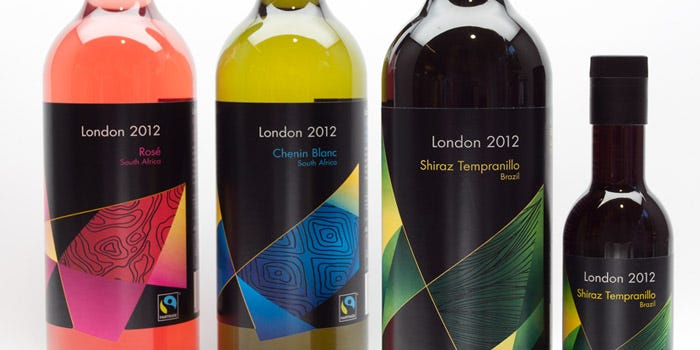As spectators continue to watch their respective countries battle for the gold at London 2012, they are toasting victories or drowning sorrows in alcohol served in recyclable PET bottles.In a move to produce the "most sustainable games ever," the London Organizing Committee for the Olympic Games and Paralympic Games (LOCOG) implemented a policy that all beverage packaging must be sold in recyclable PET plastic bottles.
August 9, 2012
As spectators continue to watch their respective countries battle for the gold at London 2012, they are toasting victories or drowning sorrows in alcohol served in recyclable PET bottles.
In a move to produce the "most sustainable games ever," the London Organizing Committee for the Olympic Games and Paralympic Games (LOCOG) implemented a policy that all beverage packaging must be sold in recyclable PET plastic bottles.
As an official supplier and sponsor of the games, Heineken was granted exclusive pouring rights for its portfolio of beer and cider brands at all London 2012 venues where alcohol is served. Still, the brewing giant is widely known for its green glass bottles.
In order to fit in with LOCOG's sustainability goals, London 2012 saw the launch of the first fully recyclable Heineken PET bottle.
Heineken hired PET supplier Constar International UK to design a limited edition 330ml PET bottle.
"The new 330ml PET bottle was designed and produced specifically to meet the need to serve Heineken lager in host venues at the London 2012 Olympic and Paralympic Games that are unable to serve beer in glass or on draught," a Heineken spokesperson told PlasticsToday.
Heineken required a PET package to follow the design aesthetics of the existing glass bottle and incorporating elements of embossing and bottle sculpting. The design also had to be compatible with the existing copackers filling line.
The new Heineken PET beer bottles are produced with Constar Osbar, a barrier technology. This material provides lightweight PET packaging yet incorporates the performance of improved gas barrier compared to standard PET, according to Constar.
The Heineken PET bottle is produced as a two-stage process. A PET preform is produced, which incorporates the three-layer structure and the barrier materials. Preforms are manufactured on a 48-cavity Kortec co-injection molding system. During this process, the barrier layer is injected and is sandwiched between the inner and outer PET layers, completely enclosing it in the preform structure.
This preform is then stretch blown into the bottle on a 6-cavity Sidel SBO6 re-heat stretch blowmolding machine. This machine produces the 330ml beer bottle at a rate of approximately 6000 bottles per hour.
While Constar PET barrier bottles are fully recyclable within the standard PET collection systems, since the Heineken bottle is green in color, it can't be re-used back into bottles, but can be used for applications that allow for colored recycled polyester material.
The Heineken spokesperson said the new bottle was produced specifically for the London 2012 Games and there are no plans at the present time to roll out beyond the UK market.
Qualifying wines
The 2012 Olympic Games are the first to have its own official wine. The International Olympic Committee approached UK-based wine merchant Bibendum to create wines that "complemented the Olympic ideals." The committed wanted the Olympic wines to be Fairtraded and packaged in PET bottles since it will be served in event areas.
Since this year's Olympics are held in London, it would be expected to assume the wines would be a product of Great Britain. However, it was mutually decided that the wines be from 2012 vintage.
Britain. However, it was mutually decided that the wines be from 2012 vintage.
"It was a crucial point to make the wines from the same vintage as the Olympics, thus we had to go south where the Southern Hemisphere regions harvest earlier in the year," said Kirstie Papworth, Bibendum's commercial director.
The white and the rosé both sourced from Stellenrust, a supplier in South Africa with a large Fairtrade offering.
The red comes from Seival Estate in Brazil, which also serves as a link between London 2012 and the Rio Games that will be held in 2016.
Throwing bottles
Still, it hasn't been all roses for plastic bottles. A spectator was accused of throwing a plastic bottle onto the stadium track right before the men's 100-meter final was set to begin, the Associated Press reported.
This man's action angered a Dutch judu bronze-medal winner who intervened after the bottle was thrown.
"I'm not suggesting vigilantism but it was actually poetic justice that they happened to be sitting next to a judo player," Sebastian Coe, chairman of the London organizing committee, was quoted as saying.
Usain Bolt, the Jamaican sprinter widely known as the fastest man ever, ended up winning the race and said he was unaware of the incident.
About the Author(s)
You May Also Like


